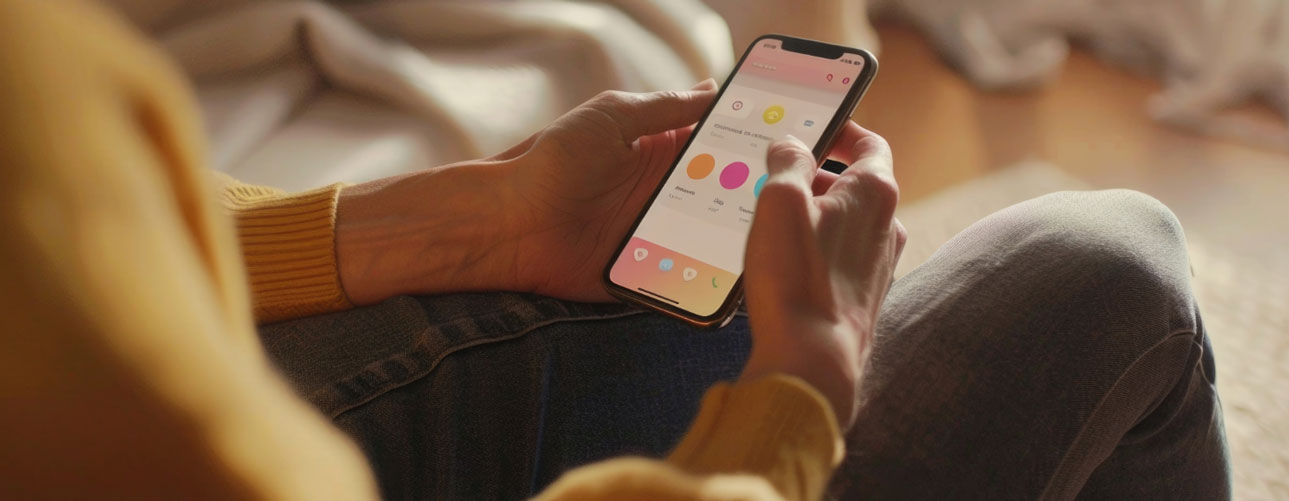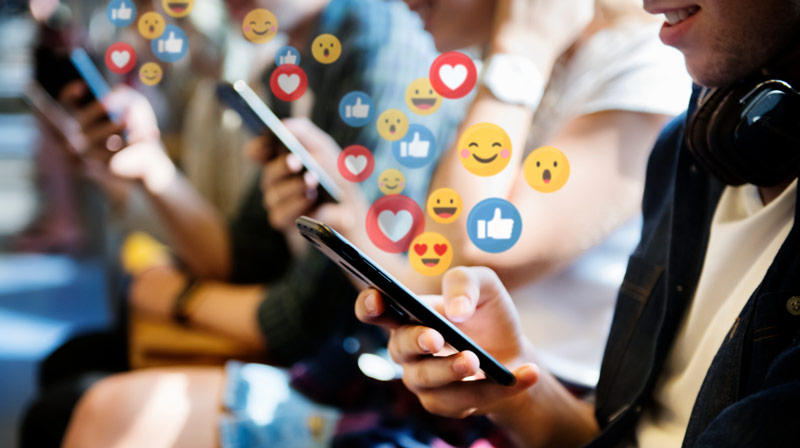We are all online: and it increasingly feels like we are online all day, every day. While technology – and the continuous advancements that come with it – have been hugely beneficial in making our lives easier in many ways, it has started to take a toll on our mental state.
According to John Nicholas, Vitality Group Actuary in Germany, there is a fine balance between tech as a “productivity booster” and tech as an “attention destroyer”. Being able to work-from-anywhere during the pandemic and now in our hybrid working lives means “there are more opportunities to connect, feel close to people, learn and create.” says Nicholas. This has helped us to continue to be productive and keep connected to our professional world. It’s also meant we can stay connected to loved ones when we aren’t able to see them as regularly.
“Despite the benefits, there are consequences to being online all of the time,” Nicholas says. “We have more tools, but we are also more distracted than ever. Our reliance – and at times addiction – to destructive types of tech is worrying.”
“The biggest challenge is that the platforms that connect us also control us. Humans are wired to get dopamine hits, and we are defenseless against the constant stream of likes and clickbait. Our attention is being farmed and being sold to the highest bidder,” Nicholas says.
At its core, technology is designed to keep us engaged and keep us logged in for as long as possible. “At a deeper level,” Nicholas adds, “internet addiction has severe impacts, with links between the rise of social media and the rise of depression, teenage suicide and body dysmorphia.”
The correlation between smartphone use and various mental health disorders, such as anxiety, depression and post-traumatic stress disorder (PTSD) have become clear. Think about the last time you logged into Facebook or Instagram. Seeing picture-perfect holiday moments or even reading up about your friends’ career success would probably have had you ‘liking’ the post. In all likelihood, you’d have been genuinely happy for their success and supportive of their news. But perhaps you felt underlying negative emotions, too. Jealousy? Resentment? ‘FOMO’?
New York Times author Johan Hari in his book Lost Connections makes the comment: “Facebook friends are now in place of neighbours, video games in place of meaningful work, status updates in place of status in the world.”
When we get on social media, we are looking for affirmation and consciously or not, we start to directly compare our life – and our achievements – to the lives of others. What this means, according to Hari, is that we tend to not enjoy what’s in the moment – always looking for external validation to make us feel fulfilled.”
The problem as the solution
The irony that something that causes the problem could also help solve it is not lost on Nicholas. While our mental health may suffer because of our phone and device usage, technology has opened a new frontier in mental health support. We now have access to telemedicine, digital therapy, virtual meditation sessions, online exercise classes, support groups, sleep-tracking apps, etc. “As individuals, we need to use the tools that have been created to farm our attention, to help us. We can use our phones in our favour,” adds Nicholas.
This is why big tech companies like Apple have started to notify consumers about how long they are spending on their phones – with behavioural incentives like goal streaks and even extrinsic rewards to motivate people to reduce their screen time.
Between 2020 and 2021, the top 10 mental wellness apps in the Google Play and Apple Store grew from 3 million to 4 million downloads per month. The good news here? “Mental health
issues are being seen for what they are: a reality for many people that can be managed with proactive treatment.”
Feeling tied to tech? Try these tips to take back control:
-
Track screen time and set time limits
Easier said than done, right? Thanks to digital wellbeing tools that are now integrated in most smartphones, you can switch on screen time functionality to see how many hours a day/week you’re online. Next, you can set up time limits for the most tempting apps or websites that steal your focus.
-
Set up tech-free zones and moments
Do you eat dinner at a specific place in your home? Make this a tech-free zone. Or even, a tech-free time zone if you have a routine mealtime.
-
Log out from (or delete!) apps you don’t need
We all have a love/hate relationship with on-your-phone work emails. For many, this is a reality you can’t choose to escape. If you can, even if only over weekends or during vacations, log out. It’s too easy to “quickly check if you’ve got mail” and this often tempts us into mindless usage. The same goes for social media platforms like Twitter and Facebook. Forcing yourself to instead use your computer rather than mindlessly scroll on your phone can help reduce your usage.
-
Going out? Leave your phone at home.
When possible, if you’re out with friends and family try to leave your phone at home, in your car if you drive, or inside a bag or pocket. Having a device on the table in front of us is too tempting and even a short lull in conversation makes us reach for it without thinking.
-
Sleep without your phone
This one is tricky. Many of us use our phones as alarm clocks, or worry that someone may need us in an emergency in the middle of night. That said, sleeping without your phone by your bed is one of the best things you can do to improve your relationship with you. The blue light exposure from our phones has been shown to negatively affect our quality of sleep – a key factor in positive mental health. Consider charging your phone in another room. And getting an alarm clock.






